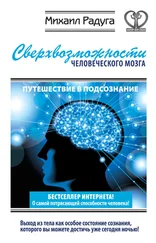Irwing, Paul & Lynn, Richard. (2006). The relation between childhood IQ and income in middle age. Journal of Social, Political, and Economic Studies. 31.
Zagorsky, Jay. (2007). Do you have to be smart to be rich? The impact of IQ on wealth, income and financial distress. Intelligence. 35.
Brown, W.W. & Reynolds, M.O.. (1975). A model of IQ, occupation, and earnings. American Economic Review . 65.
Jacoby, Russell & Glauberman, Naomi (1995). The Bell Curve Debate. Three Rivers Pres.
Ceci, SJ & Williams, WM. (1997). Schooling, intelligence, and income. American Psychologist . 52.
Lynn, Richard & Vanhanen, T. (2002). IQ and the Wealth of Nations. Praeger/Greenwood.
Firkowska-Mankiewicz, Anna. (2002). Intelligence (IQ) as a Predictor of Life Success. International Journal of Sociology . 32.
Strenze, Tarmo. (2007). Intelligence and Socioeconomic Success: A Meta-Analytic Review of Longitudinal Research. Intelligence . 35.
Daniele, Vittorio. (2013). Does the intelligence of populations determine the wealth of nations?. Journal of Socio-Economics . 46.
Yu, Zhangbin & Han, S & Cao, X & Guo, X. (2009). Intelligence in relation to obesity: A systematic review and meta-analysis. Obesity reviews: an official journal of the International Association for the Study of Obesity . 11
Maccann, Carolyn & Roberts, Richard. (2012). Just as smart but not as successful: Obese students obtain lower school grades but equivalent test scores to nonobese students. International journal of obesity (2005). 37.
Rosenblad, Andreas & Nilsson, Göran & Leppert, Jerzy. (2012). Intelligence level in late adolescence is inversely associated with BMI change during 22 years of follow-up: Results from the WICTORY study. European journal of epidemiology . 27.
Cawley, John & Spieß, C.. (2008). Obesity and skill attainment in early childhood. Economics & Human Biology . 6.
Belsky, Daniel & Caspi, Avshalom & Goldman-Mellor, Sidra & Meier, Madeline & Ramrakha, Sandhya & Poulton, Richie & Moffitt, Terrie. (2013). Is Obesity Associated With a Decline in Intelligence Quotient During the First Half of the Life Course?. American journal of epidemiology . 178.
Benito-León, Julián & Mitchell, Alex & Hernández-Gallego, Jesus & Bermejo-Pareja, Felix. (2013). Obesity and impaired cognitive functioning in the elderly: A population-based cross-sectional study (NEDICES). European journal of neurology: the official journal of the European Federation of Neurological Societies . 20.
Kanazawa, Satoshi. (2013). Childhood Intelligence and Adult Obesity. Obesity (Silver Spring, Md.). 21.
Sandjaja, Sandjaja & Poh, Bee & Rojroonwasinkul, Nipa & Nyugen, Bao & Budiman, Basuki & Ng, Alvin Lai Oon & Soonthorndhada, Kusol & Xuyen, Hoang & Deurenberg, Paul & Parikh, Panam. (2013). Relationship between anthropometric indicators and cognitive performance in South-East Asian school-aged children. British Journal of Nutrition . 110.
Galván, Marcos & Uauy, Ricardo & López-Rodríguez, Guadalupe & Kain, Juliana. (2014). Association between childhood obesity, cognitive development, physical fitness and social-emotional wellbeing in a transitional economy. Annals of human biology. 41.
Altschul, Drew & Wraw, Christina & Gale, Catharine & Deary, Ian. (2019). How youth cognitive and sociodemographic factors relate to the development of overweight and obesity in the UK and the USA: a prospective cross-cohort study of the National Child Development Study and National Longitudinal Study of Youth 1979. BMJ Open . 9.
Gale, Catharine & Hatch, Stephani & Batty, G. & Deary, Ian. (2009). Intelligence in childhood and risk of psychological distress in adulthood: The 1958 National Child Development Survey and the 1970 British Cohort Study. Intelligence . 37.
Hassiotis, Angela & Tanzarella, M & Bebbington, Paul & Cooper, Claudia. (2010). Prevalence and predictors of suicidal behaviour in a sample of adults with estimated borderline intellectual functioning: Results from a population survey. Journal of affective disorders . 129.
Veenhoven, Ruut & Choi, Yowon. (2012). Does Intelligence Boost Happiness? Smartness of All Pays More Than Being Smarter Than Others. Int. J. of Happiness and Development. 1.
Gow, Alan & Whiteman, Martha & Pattie, Alison & Whalley, Lawrence & Starr, John & Deary, Ian. (2005). Lifetime intellectual function and satisfaction with life in old age: Longitudinal cohort study. BMJ (Clinical research ed.). 331.
Ali, Afia & Ambler, G. & Strydom, A. & Rai, Dheeraj & Cooper, Claudia & McManus, Sally & Weich, Scott & Meltzer, H. & dein, Simon & Hassiotis, Angela. (2013). The relationship between happiness and intelligent quotient: The contribution of socio-economic and clinical factors. Psychological Medicine . 43.
Kanazawa, Satoshi. (2013). Why is intelligence associated with stability of happiness?. British Journal of Psychology . 105.
Stolarski, Maciej & Jasielska, Dorota & Zajenkowski, Marcin. (2014). Are all smart nations happier? Country aggregate IQ predicts happiness, but the relationship is moderated by individualism—collectivism. Intelligence . 50.
Gonzalez‐Mulé, Erik & Carter, Kameron & Mount, Michael. (2017). Are smarter people happier? Meta-analyses of the relationships between general mental ability and job and life satisfaction. Journal of Vocational Behavior . 99.
Dimitrijević, Ana & Marjanović, Zorana & Dimitrijevic, Aleksandar. (2018). Whichever intelligence makes you happy: The role of academic, emotional and practical abilities in predicting psychological well-being. Personality and Individual Differences . 132.
Ahmed, Rifaan & Kesavayuth, Dusanee & Zikos, Vasileios. (2018). Does being smarter make you happier? Evidence from Europe. Journal of Behavioral and Experimental Economics . 76.
Bailey, Drew & Geary, David. (2009). Hominid Brain Evolution. Human Nature . 20.
Hawks, John. (2011). Selection for smaller brains in Holocene human evolution.
Sherwood, Chet & Gordon, Adam & Allen, John & Phillips, Kimberley & Erwin, Joseph & Hof, Patrick & Hopkins, William. (2011). Aging of the cerebral cortex differs between humans and chimpanzees. Proceedings of the National Academy of Sciences of the United States of America. 108.
Laverick, Rosanna & Haddow, Lewis & Daskalopoulou, Marina & Lampe, Fiona & Gilson, Richard & Speakman, Andrew & Antinori, Andrea & Bruun, Tina & Vassilenko, Anna & Collins, Simon & Rodger, Alison. (2017). Self-reported difficulties with everyday function, cognitive symptoms and cognitive function in people with HIV. Journal of acquired immune deficiency syndromes (1999). 76.
Читать дальше












